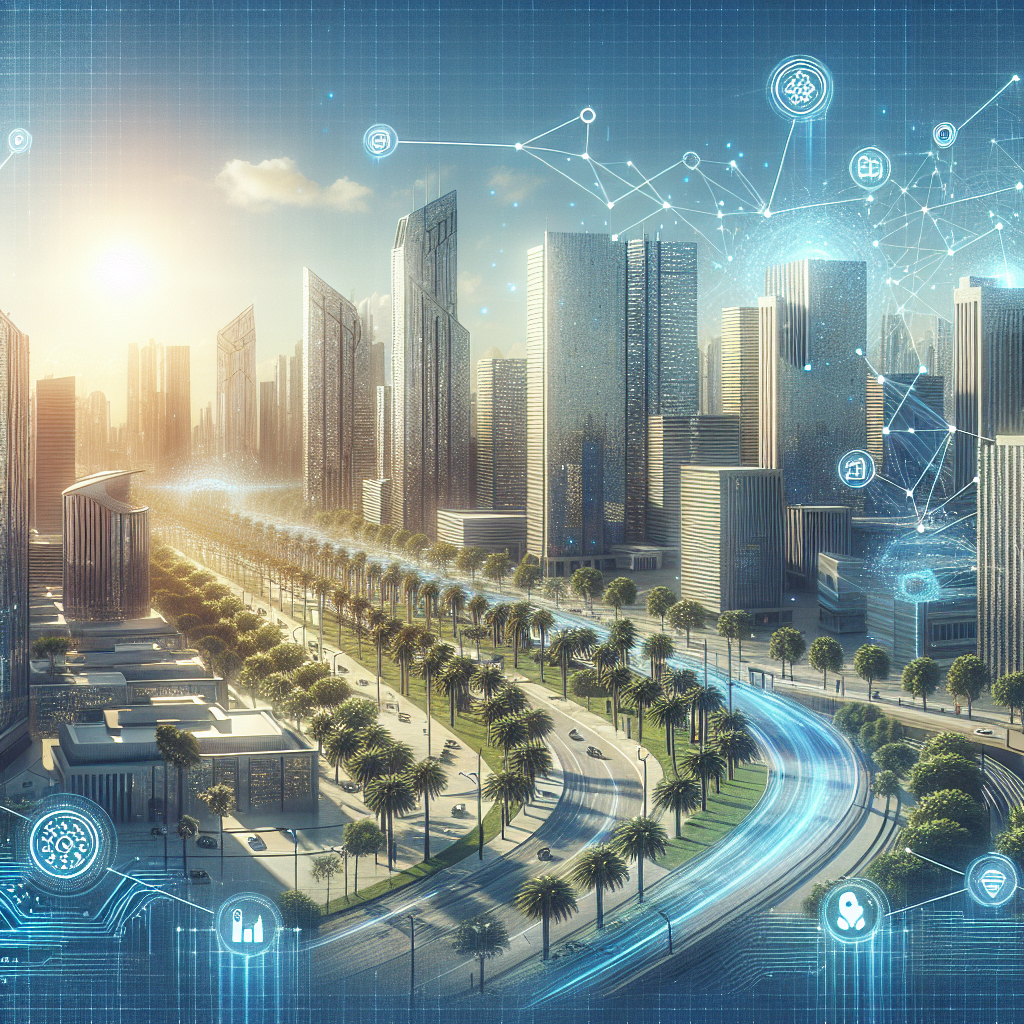In recent years, the concept of Smart Cities has gained traction as cities around the world look for innovative ways to improve efficiency, sustainability, and quality of life for their residents. One key technology that is driving the development of Smart Cities is Artificial Intelligence (AI). AI solutions are being used to collect, analyze, and interpret data to make cities smarter and more responsive to the needs of their citizens.
AI solutions for Smart Cities encompass a wide range of applications, from traffic management and public safety to energy efficiency and waste management. These solutions leverage the power of AI algorithms to process massive amounts of data in real-time, enabling cities to make informed decisions and optimize their resources.
One of the key benefits of AI solutions for Smart Cities is their ability to streamline operations and improve efficiency. For example, AI-powered traffic management systems can analyze traffic patterns and adjust traffic signals in real-time to reduce congestion and improve the flow of traffic. This not only saves time for commuters but also reduces carbon emissions and improves air quality in the city.
AI solutions can also enhance public safety by analyzing data from surveillance cameras, sensors, and social media to identify potential threats and respond quickly to emergencies. For example, AI algorithms can detect anomalies in surveillance footage and alert law enforcement to potential security risks. This allows cities to proactively address safety concerns and prevent crime before it happens.
In addition to traffic management and public safety, AI solutions are also being used to improve energy efficiency in Smart Cities. By analyzing data from smart meters and sensors, AI algorithms can identify patterns of energy usage and optimize energy distribution to reduce waste and lower costs. This not only helps cities to save money but also reduces their carbon footprint and contributes to a more sustainable environment.
Waste management is another area where AI solutions are making a significant impact in Smart Cities. By analyzing data from sensors in waste bins and collection trucks, AI algorithms can optimize waste collection routes and schedules to reduce fuel consumption and minimize the environmental impact of waste disposal. This not only saves money for cities but also improves the overall cleanliness and sanitation of the urban environment.
Overall, AI solutions for Smart Cities offer a wide range of benefits, including improved efficiency, enhanced public safety, energy savings, and environmental sustainability. As cities continue to grow and face new challenges, AI technology will play an increasingly important role in helping them to become smarter and more responsive to the needs of their residents.
FAQs:
Q: How do AI solutions for Smart Cities collect and analyze data?
A: AI solutions for Smart Cities collect data from a variety of sources, including sensors, cameras, social media, and other IoT devices. This data is then analyzed using AI algorithms to identify patterns, trends, and anomalies that can help cities to make informed decisions and optimize their resources.
Q: Are AI solutions for Smart Cities secure?
A: Security is a top priority for AI solutions in Smart Cities. Measures such as encryption, authentication, and data anonymization are used to protect sensitive information and ensure the privacy of citizens. Additionally, cities work closely with cybersecurity experts to identify and mitigate potential risks to their AI systems.
Q: How can AI solutions for Smart Cities benefit residents?
A: AI solutions for Smart Cities can benefit residents in a variety of ways, including reducing commute times, improving public safety, lowering energy costs, and enhancing the overall quality of life in the city. By leveraging AI technology, cities can become more efficient, sustainable, and responsive to the needs of their citizens.
Q: What are some examples of AI solutions currently in use in Smart Cities?
A: Some examples of AI solutions in Smart Cities include traffic management systems, public safety analytics, energy optimization algorithms, waste management platforms, and smart grid technology. These solutions are being deployed in cities around the world to improve efficiency, sustainability, and quality of life for residents.

